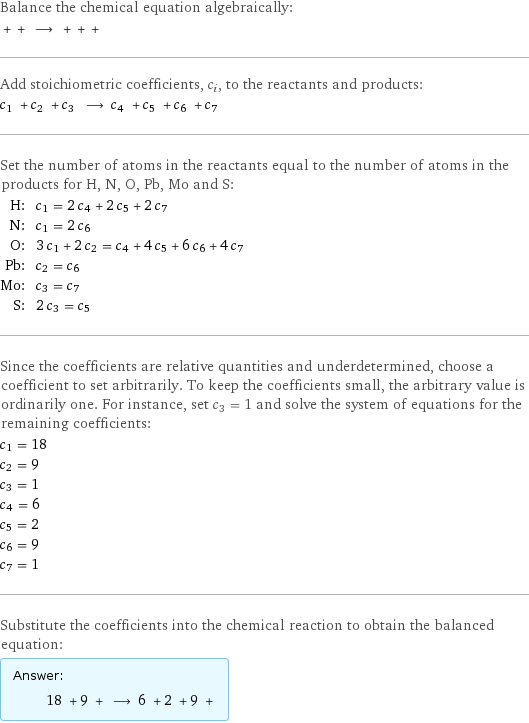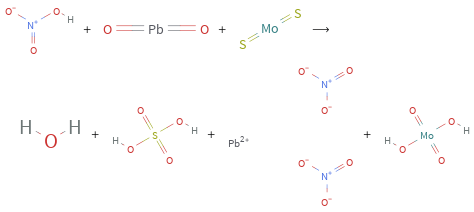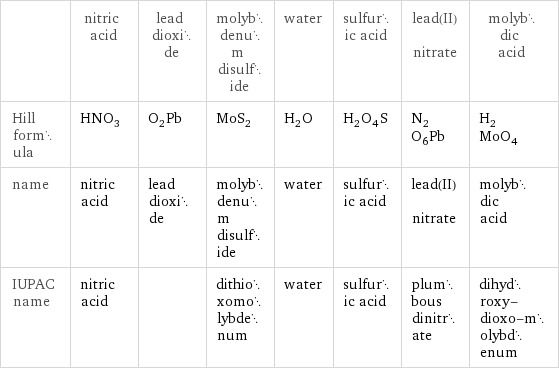Input interpretation

nitric acid + lead dioxide + molybdenum disulfide ⟶ water + sulfuric acid + lead(II) nitrate + molybdic acid
Balanced equation

Balance the chemical equation algebraically: + + ⟶ + + + Add stoichiometric coefficients, c_i, to the reactants and products: c_1 + c_2 + c_3 ⟶ c_4 + c_5 + c_6 + c_7 Set the number of atoms in the reactants equal to the number of atoms in the products for H, N, O, Pb, Mo and S: H: | c_1 = 2 c_4 + 2 c_5 + 2 c_7 N: | c_1 = 2 c_6 O: | 3 c_1 + 2 c_2 = c_4 + 4 c_5 + 6 c_6 + 4 c_7 Pb: | c_2 = c_6 Mo: | c_3 = c_7 S: | 2 c_3 = c_5 Since the coefficients are relative quantities and underdetermined, choose a coefficient to set arbitrarily. To keep the coefficients small, the arbitrary value is ordinarily one. For instance, set c_3 = 1 and solve the system of equations for the remaining coefficients: c_1 = 18 c_2 = 9 c_3 = 1 c_4 = 6 c_5 = 2 c_6 = 9 c_7 = 1 Substitute the coefficients into the chemical reaction to obtain the balanced equation: Answer: | | 18 + 9 + ⟶ 6 + 2 + 9 +
Structures

+ + ⟶ + + +
Names

nitric acid + lead dioxide + molybdenum disulfide ⟶ water + sulfuric acid + lead(II) nitrate + molybdic acid
Chemical names and formulas

| nitric acid | lead dioxide | molybdenum disulfide | water | sulfuric acid | lead(II) nitrate | molybdic acid Hill formula | HNO_3 | O_2Pb | MoS_2 | H_2O | H_2O_4S | N_2O_6Pb | H_2MoO_4 name | nitric acid | lead dioxide | molybdenum disulfide | water | sulfuric acid | lead(II) nitrate | molybdic acid IUPAC name | nitric acid | | dithioxomolybdenum | water | sulfuric acid | plumbous dinitrate | dihydroxy-dioxo-molybdenum